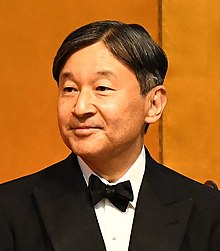Japanese Emperors: Guardians of a Time-Honored Legacy

Emperor Naruhito
Current Japanese Emperor
Japanese emperors, known as "tennÅ" in the Japanese language, occupy a unique and revered position in the country's history, culture, and society. As the symbol of Japan and the world's oldest hereditary monarchy, the role of the Japanese emperor has evolved significantly over the centuries. This article will explore the origins, historical significance, and contemporary role of Japanese emperors.
Origins of the Japanese Emperors
The Japanese imperial lineage is one of the world's oldest and most continuous monarchies, with a lineage that claims to date back more than 2,600 years. According to traditional Japanese mythology, the first emperor, Emperor Jimmu, ascended to the throne in 660 BCE. While the historical accuracy of these early emperors is debated, they are an integral part of Japan's cultural and historical identity.
Historical Significance
Throughout Japan's history, emperors played various roles and held different levels of power:
-
Ancient Japan: In ancient Japan, emperors were revered as spiritual leaders and symbols of unity. They were believed to be descendants of the sun goddess Amaterasu, and their role was largely ceremonial and religious.
-
Medieval Period: During the medieval period, real political power shifted from the emperor to regional warlords and samurai clans. Emperors became symbolic figureheads, while shoguns' military rulers effectively controlled the country.
-
Edo Period: The Tokugawa Shogunate (1603-1868) marked a period of relative peace and stability. The emperor's role was further reduced to that of a symbolic figure, while the shogun held de facto power.
-
Meiji Restoration: The Meiji Restoration in 1868 marked a significant turning point. Emperor Meiji was "restored" to power, symbolising the centralisation of authority and the beginning of Japan's modernisation and westernisation.
Contemporary Role of the Emperor
In modern Japan, the emperor's role is largely symbolic and ceremonial. The Constitution of Japan, promulgated in 1947, defines the emperor as "the symbol of the State and the unity of the people." The emperor's powers are limited, and political authority rests with the elected government.
The emperor performs various ceremonial duties, including:
-
Enthronement: The enthronement ceremony marks the official accession of a new emperor. It is a grand and highly ceremonial event attended by dignitaries worldwide.
-
Shinto Rituals: Emperors participate in various Shinto rituals, including those at Ise Grand Shrine, to fulfil their role as the nation's spiritual leaders.
-
National Holidays: The emperor's birthday and other significant occasions are celebrated as national holidays in Japan.
-
Cultural Activities: Emperors often engage in cultural activities, such as calligraphy, poetry, and music, which the Japanese people appreciate.
-
Diplomatic Functions: The emperor meets with foreign dignitaries and represents Japan on state visits abroad.
The Imperial Family
The Japanese imperial family, known as the "Imperial House of Japan," consists of the emperor, empress, and other family members. Succession to the Chrysanthemum Throne follows a strict agnatic primogeniture, meaning that the throne is typically passed from father to son. However, there have been periods of empress regnants and discussions about possible changes to the succession laws.
Challenges and Debates
The role of the emperor in contemporary Japan is not without controversy and debate. Some argue for a more active role, while others emphasise preserving the emperor's symbolic status to maintain the separation of religion and politics.
One of the most significant debates centres around the issue of female succession. As of my last knowledge update in September 2021, Japanese law did not allow female emperors or female members of the imperial family to retain their royal status after marriage, which has raised concerns about the future of the imperial family.
Conclusion
Japanese emperors represent a fascinating blend of tradition, spirituality, and modernity. While their historical significance has evolved over the centuries, emperors continue to serve as a unifying symbol for the Japanese people. In contemporary Japan, the emperor's role is mainly ceremonial, but their presence remains a vital and respected part of the nation's cultural heritage and identity. The Chrysanthemum Throne is a testament to Japan's rich history and enduring traditions.
Book a Free Trial Class at Bushido Karate Club
Bushido Karate Club is currently accepting new members. Contact us today to book a trial class in Douglas or Carrigtwohill and begin your karate journey. Places are limited so call today to avoid disappointment.
Tel: +353876307006






